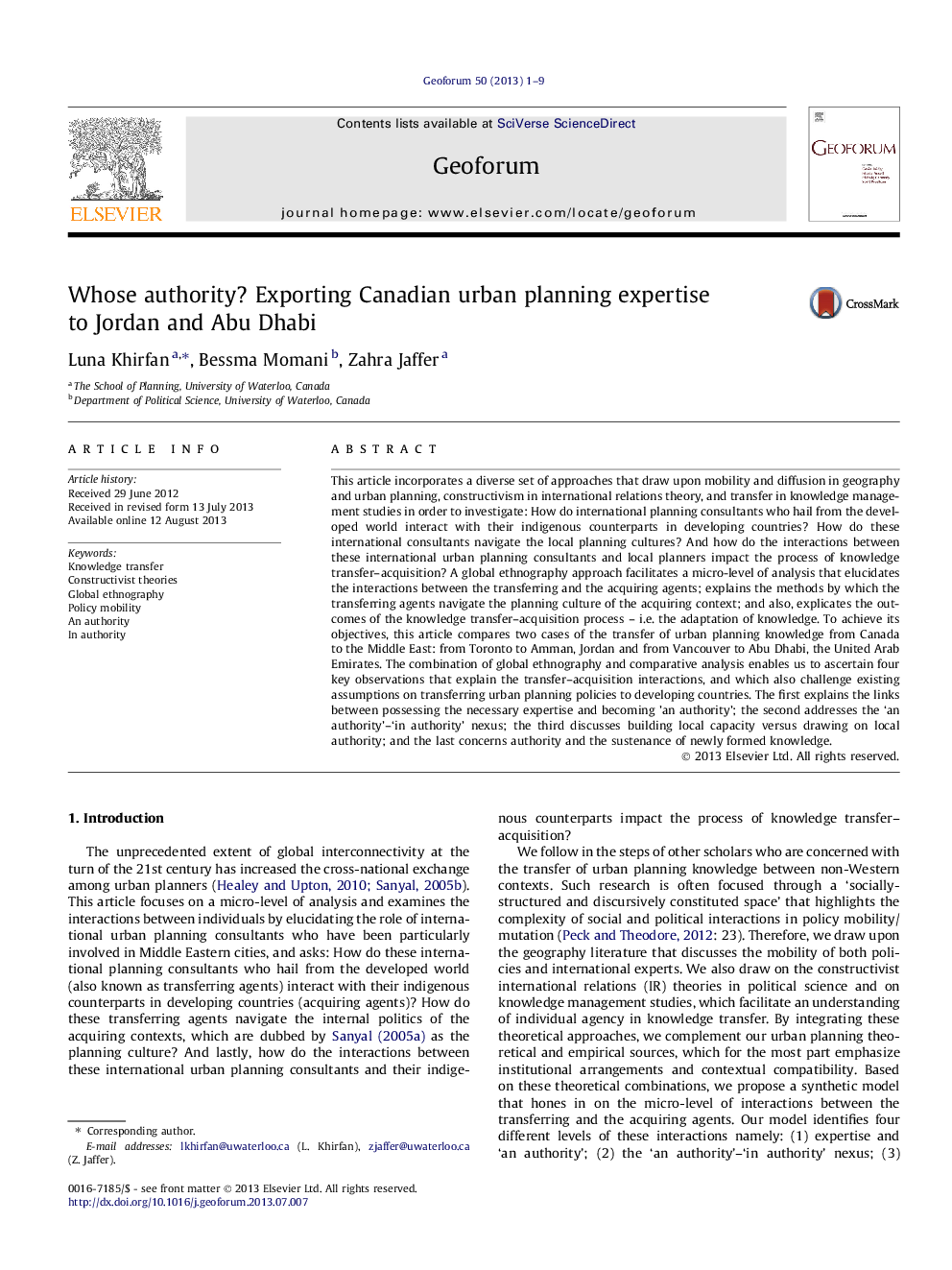| Article ID | Journal | Published Year | Pages | File Type |
|---|---|---|---|---|
| 5074114 | Geoforum | 2013 | 9 Pages |
Abstract
This article incorporates a diverse set of approaches that draw upon mobility and diffusion in geography and urban planning, constructivism in international relations theory, and transfer in knowledge management studies in order to investigate: How do international planning consultants who hail from the developed world interact with their indigenous counterparts in developing countries? How do these international consultants navigate the local planning cultures? And how do the interactions between these international urban planning consultants and local planners impact the process of knowledge transfer-acquisition? A global ethnography approach facilitates a micro-level of analysis that elucidates the interactions between the transferring and the acquiring agents; explains the methods by which the transferring agents navigate the planning culture of the acquiring context; and also, explicates the outcomes of the knowledge transfer-acquisition process - i.e. the adaptation of knowledge. To achieve its objectives, this article compares two cases of the transfer of urban planning knowledge from Canada to the Middle East: from Toronto to Amman, Jordan and from Vancouver to Abu Dhabi, the United Arab Emirates. The combination of global ethnography and comparative analysis enables us to ascertain four key observations that explain the transfer-acquisition interactions, and which also challenge existing assumptions on transferring urban planning policies to developing countries. The first explains the links between possessing the necessary expertise and becoming 'an authority'; the second addresses the 'an authority'-'in authority' nexus; the third discusses building local capacity versus drawing on local authority; and the last concerns authority and the sustenance of newly formed knowledge.
Keywords
Related Topics
Social Sciences and Humanities
Economics, Econometrics and Finance
Economics and Econometrics
Authors
Luna Khirfan, Bessma Momani, Zahra Jaffer,
